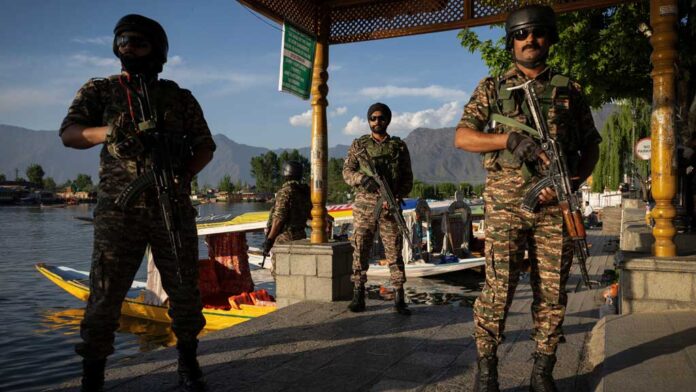Indian and Pakistani forces have exchanged gunfire for the third consecutive night along the Line of Control (LoC), the military boundary, as tensions escalate following last week’s terrorist attack in Jammu and Kashmir’s Pahalgam.
With relations between the two neighbors worsening, the Indian Army has once again accused Pakistani forces of initiating regular and “unprovoked” cross-border firing, according to Indian broadcaster NDTV.
“On the night of April 26-27, 2025, Pakistan Army posts initiated unprovoked small arms fire in the areas opposite Tutmari Gali and Rampur sectors. Our troops responded effectively with appropriate small arms fire,” the Indian Army said in a statement.
These repeated ceasefire violations come in the wake of the Pahalgam massacre, one of the deadliest terror attacks in recent years and the deadliest since the revocation of Article 370 in 2019. Twenty-six civilians were killed by terrorists, whom India has linked to the Pakistan-based Lashkar-e-Taiba, further souring relations between the two nuclear-armed nations.
Pakistan, frequently accused of being a “global epicenter of terrorism,” has denied direct involvement in the attack and has called for a “neutral and credible” investigation, even as its troops continue firing across the border from areas known to host terror launch pads, NDTV reports.
The ongoing flare-ups coincide with retaliatory actions by India. Both countries have recalled their diplomatic staff, suspended visa services, and shut down the Wagah-Attari border, the only trade route between them.
India also announced the suspension of the Indus Waters Treaty, a key 1960 agreement governing river water sharing, sparking outrage in Pakistan. Bilawal Bhutto-Zardari, chief of the Pakistan Peoples Party (PPP), warned, “The Indus is ours and will remain ours — either our water will flow through it, or their blood.”
Indian Union Minister Hardeep Singh Puri dismissed the threat, stating bluntly, “Let him jump somewhere in water.”
Meanwhile, Pakistan’s Prime Minister Shehbaz Sharif, in his first statement regarding the Pahalgam attack, called for a “neutral and transparent” investigation, accusing India of engaging in a “perpetual blame game.”
Indian Prime Minister Narendra Modi, however, promised strong and decisive action. He vowed that Indian forces would track down the terrorists and conspirators responsible for the attack, guaranteeing that their punishment would be “bigger than they can imagine.”



